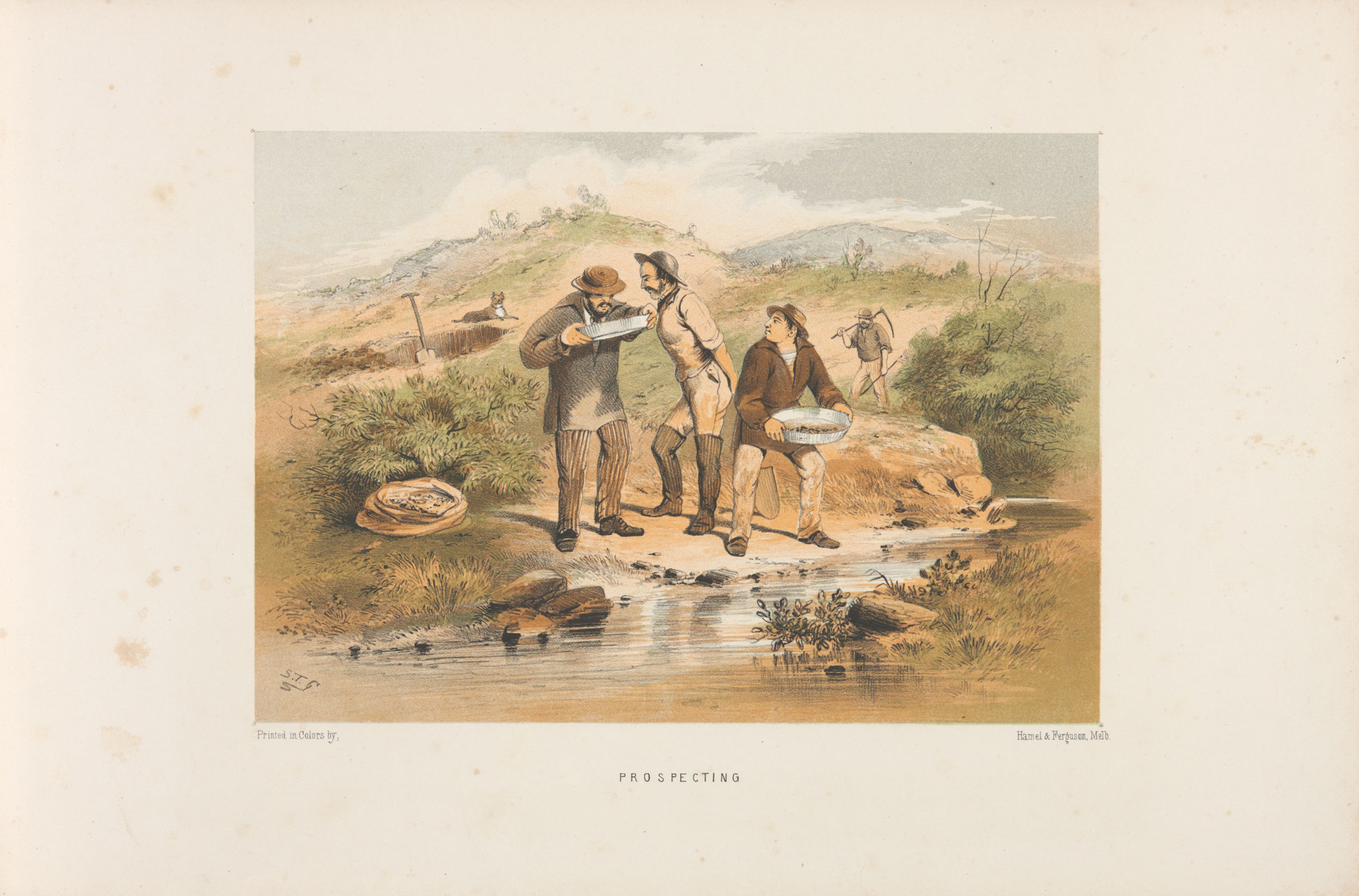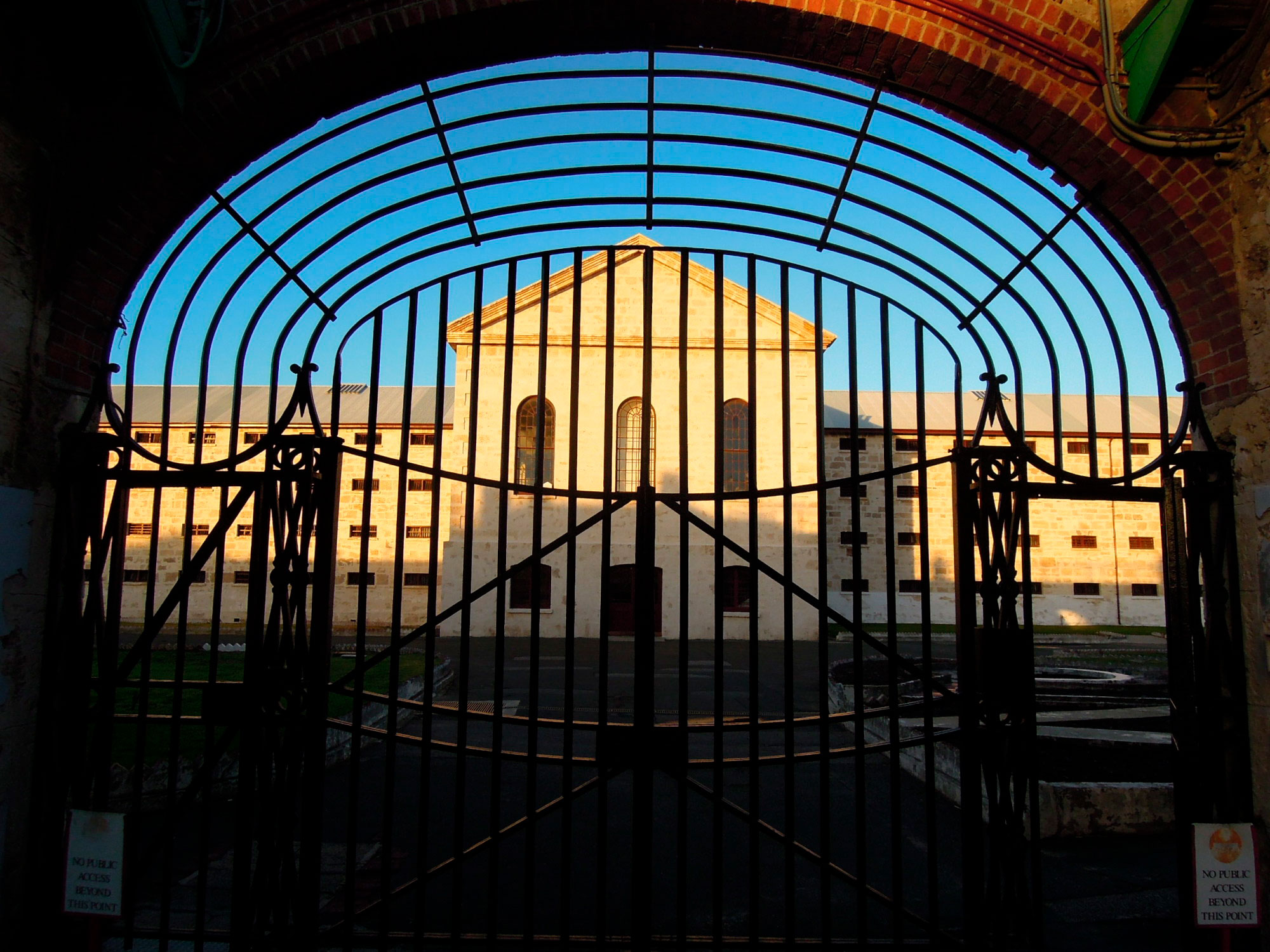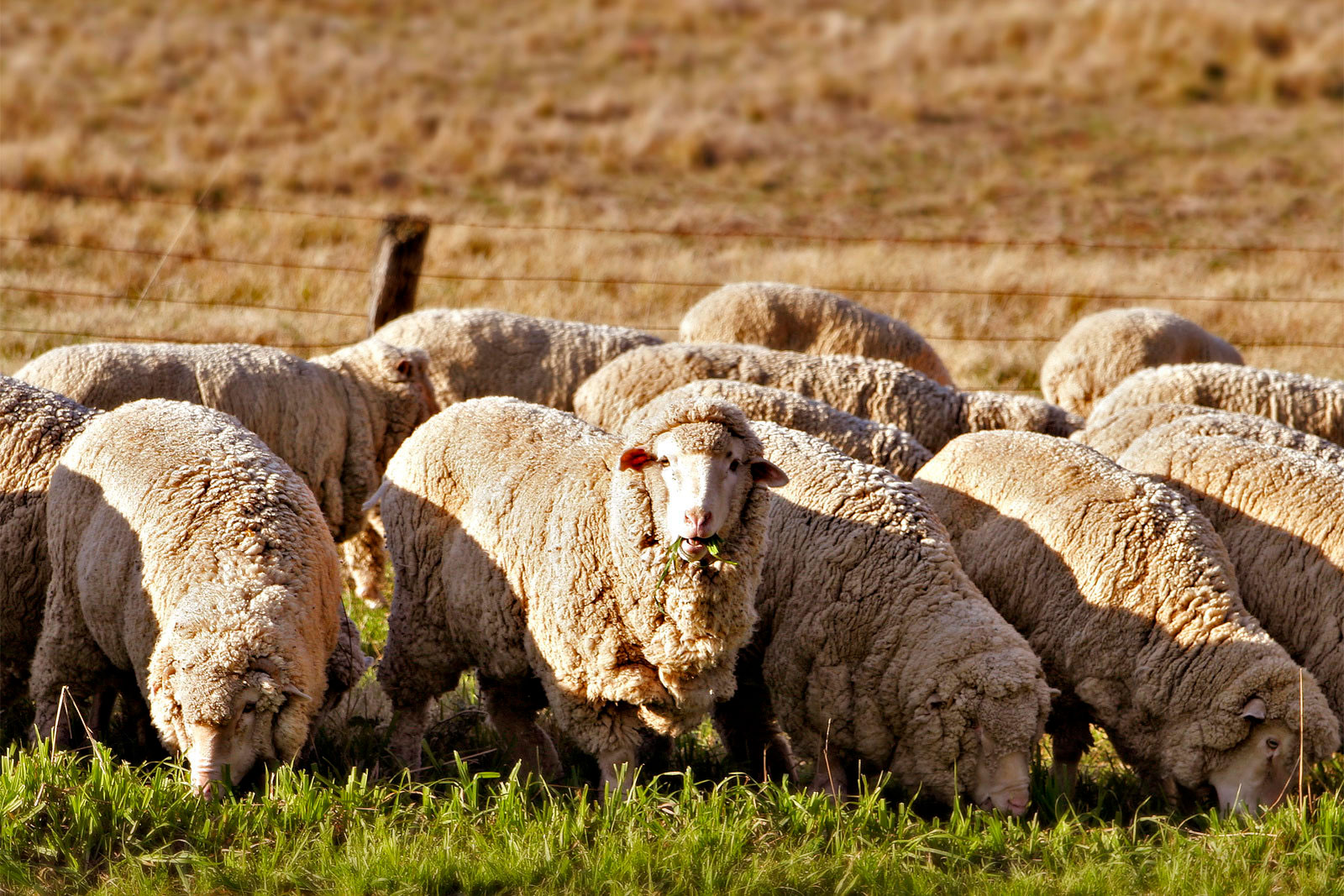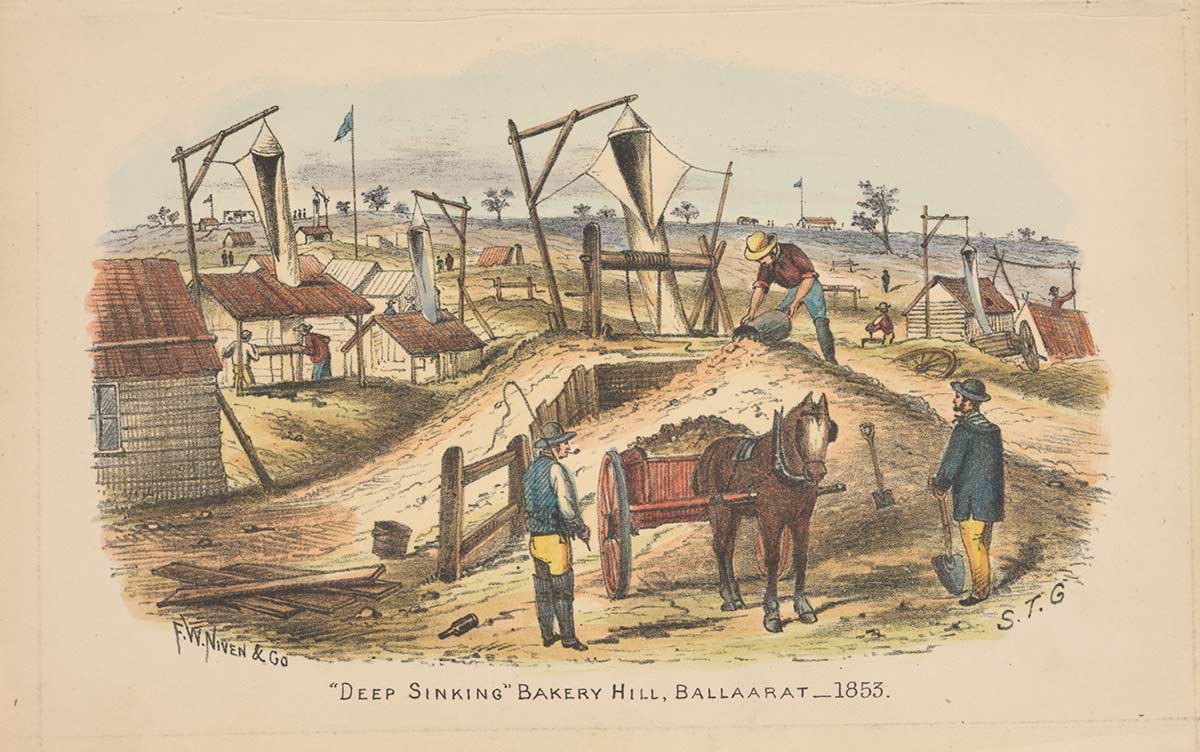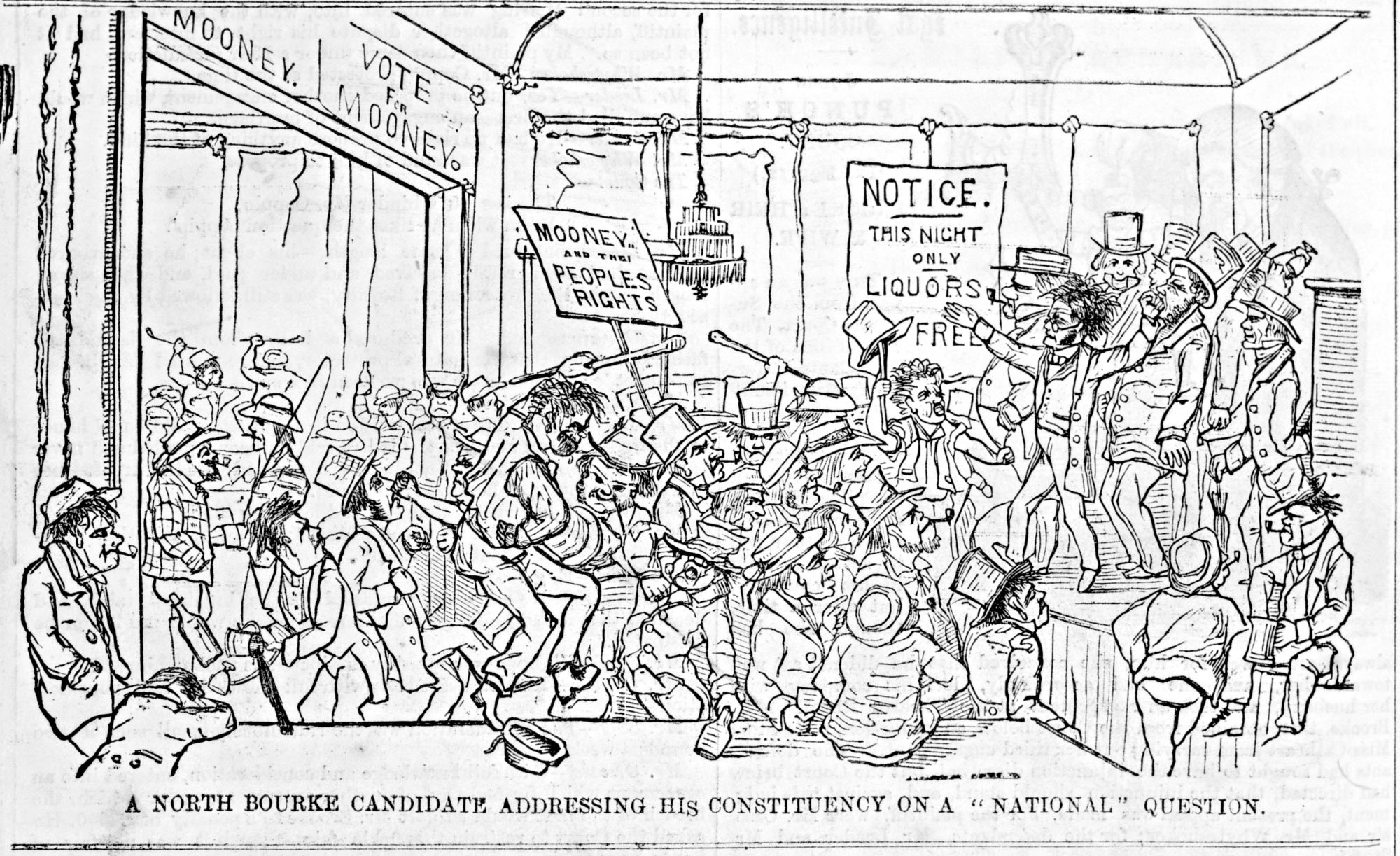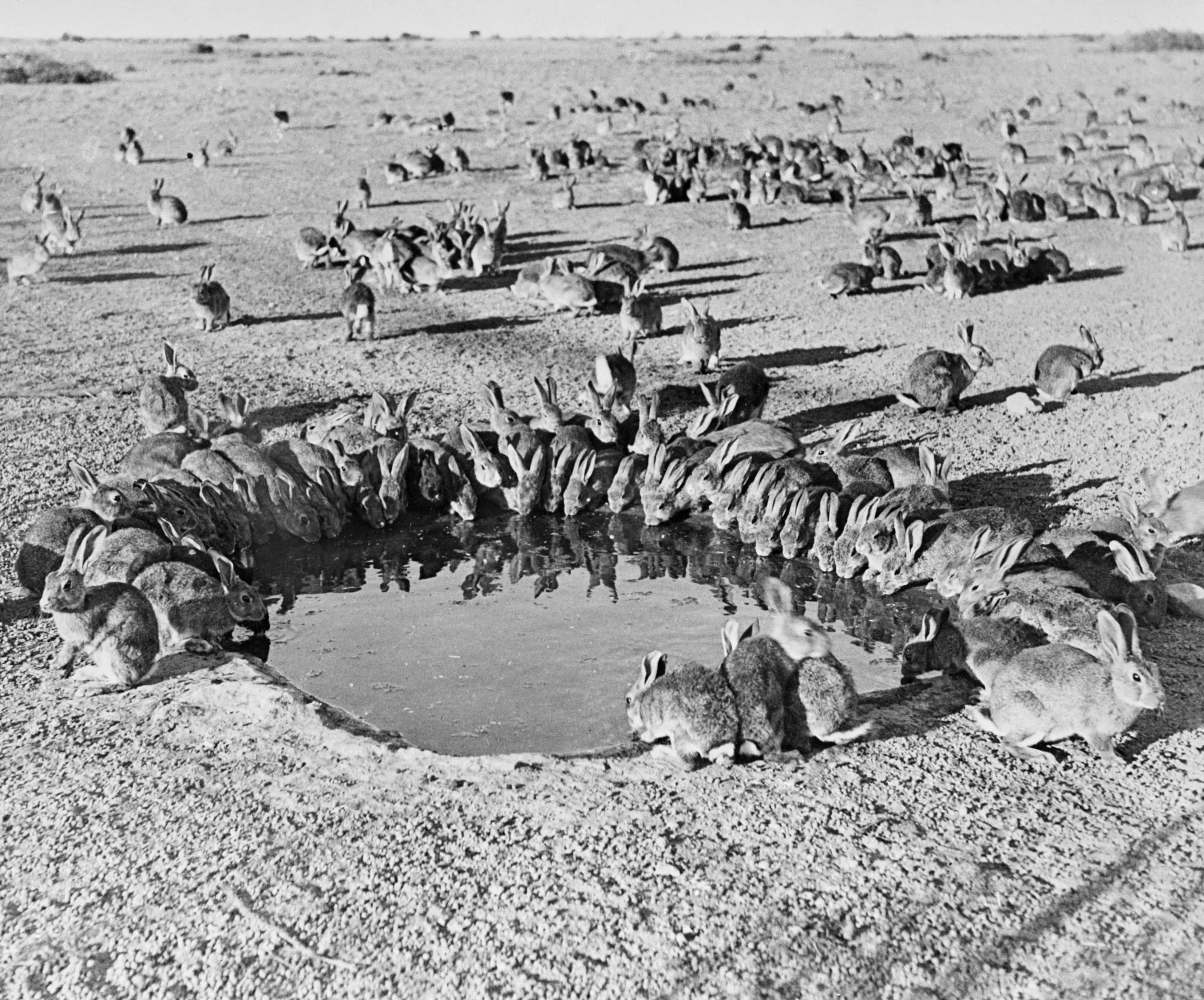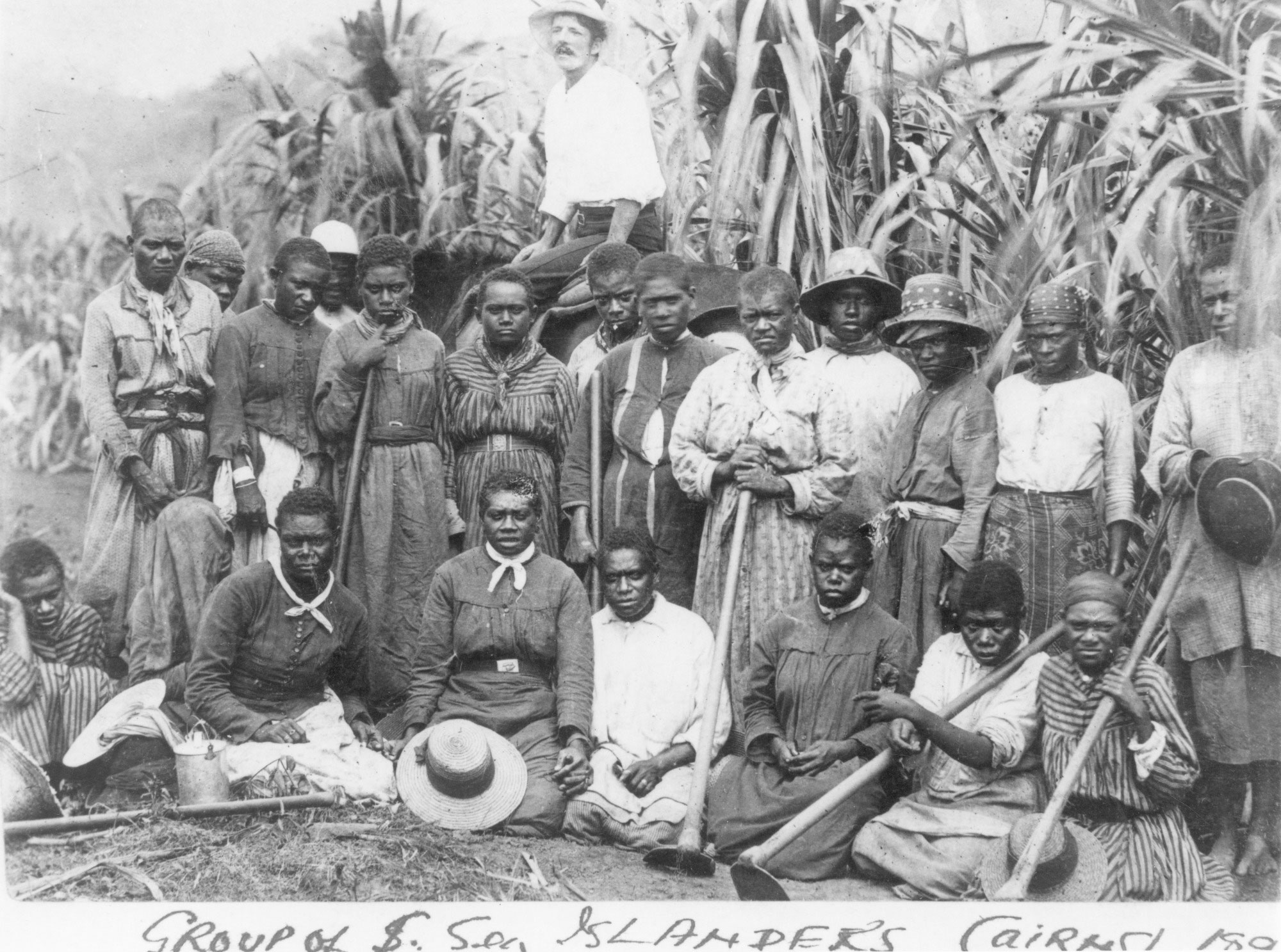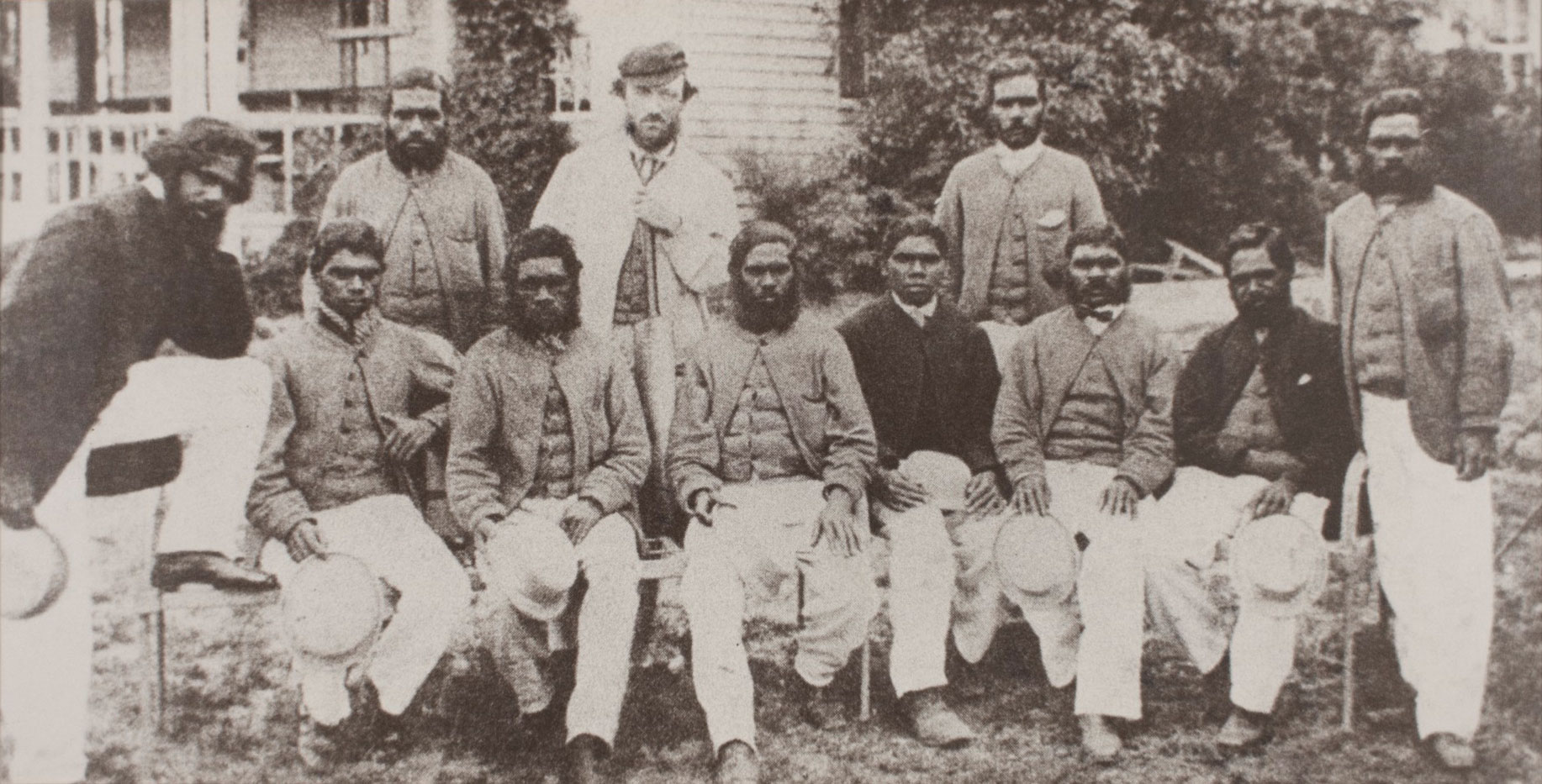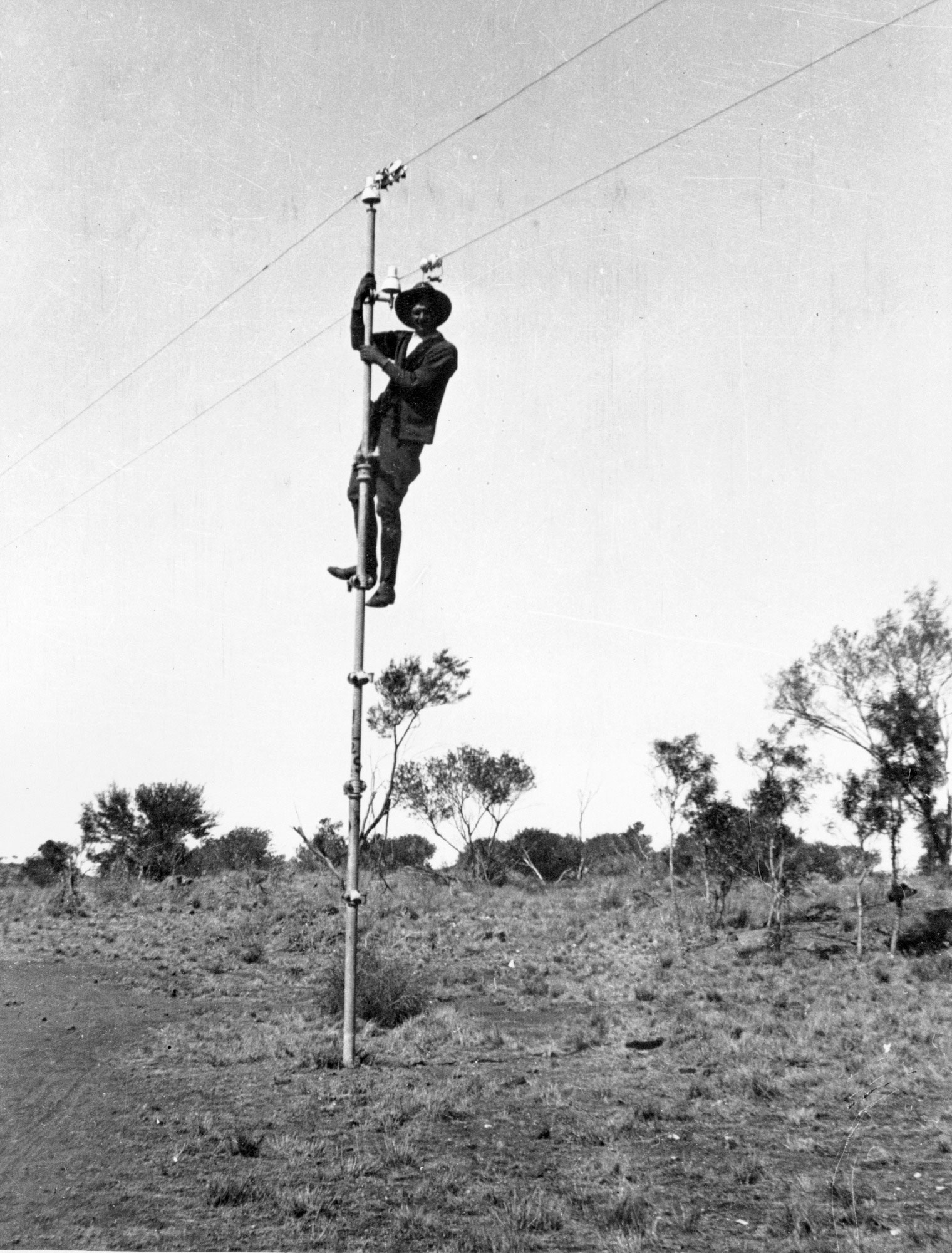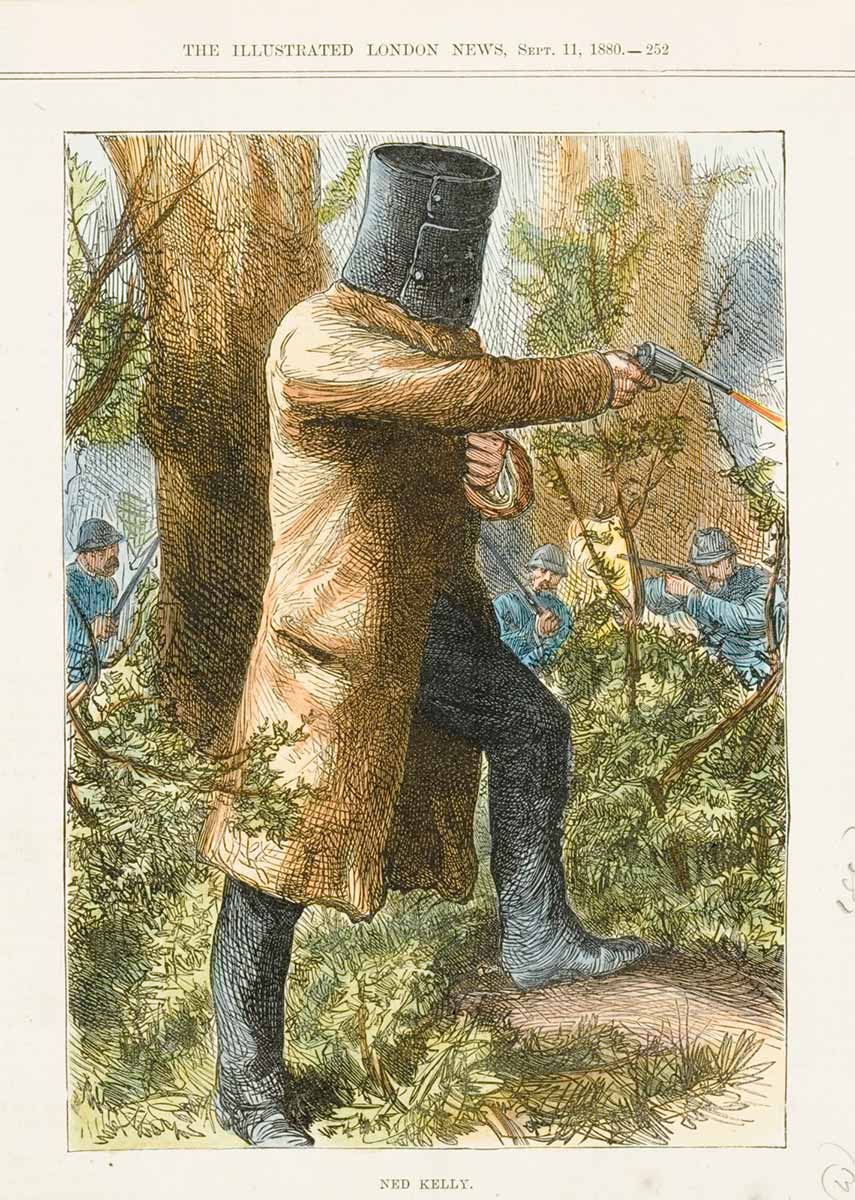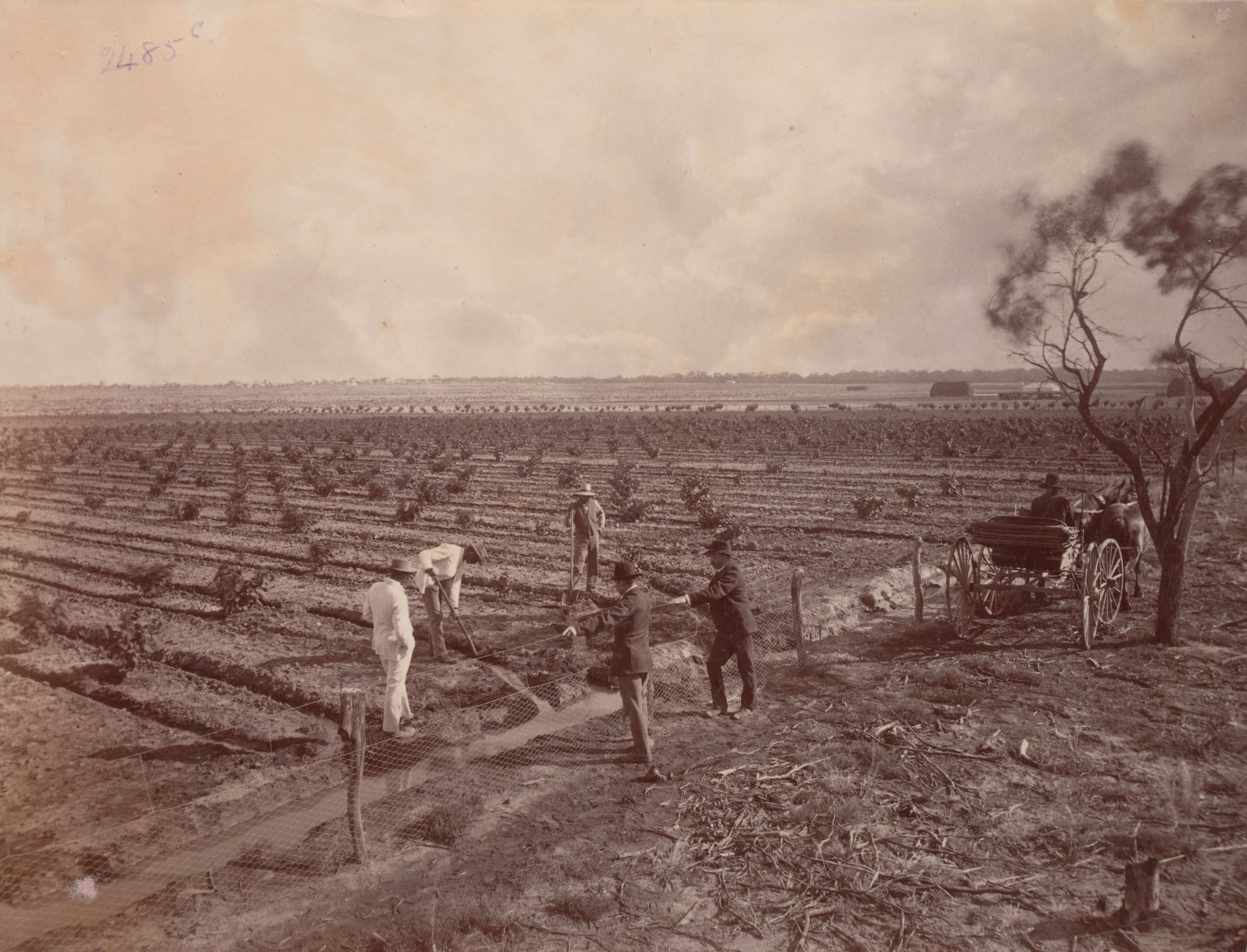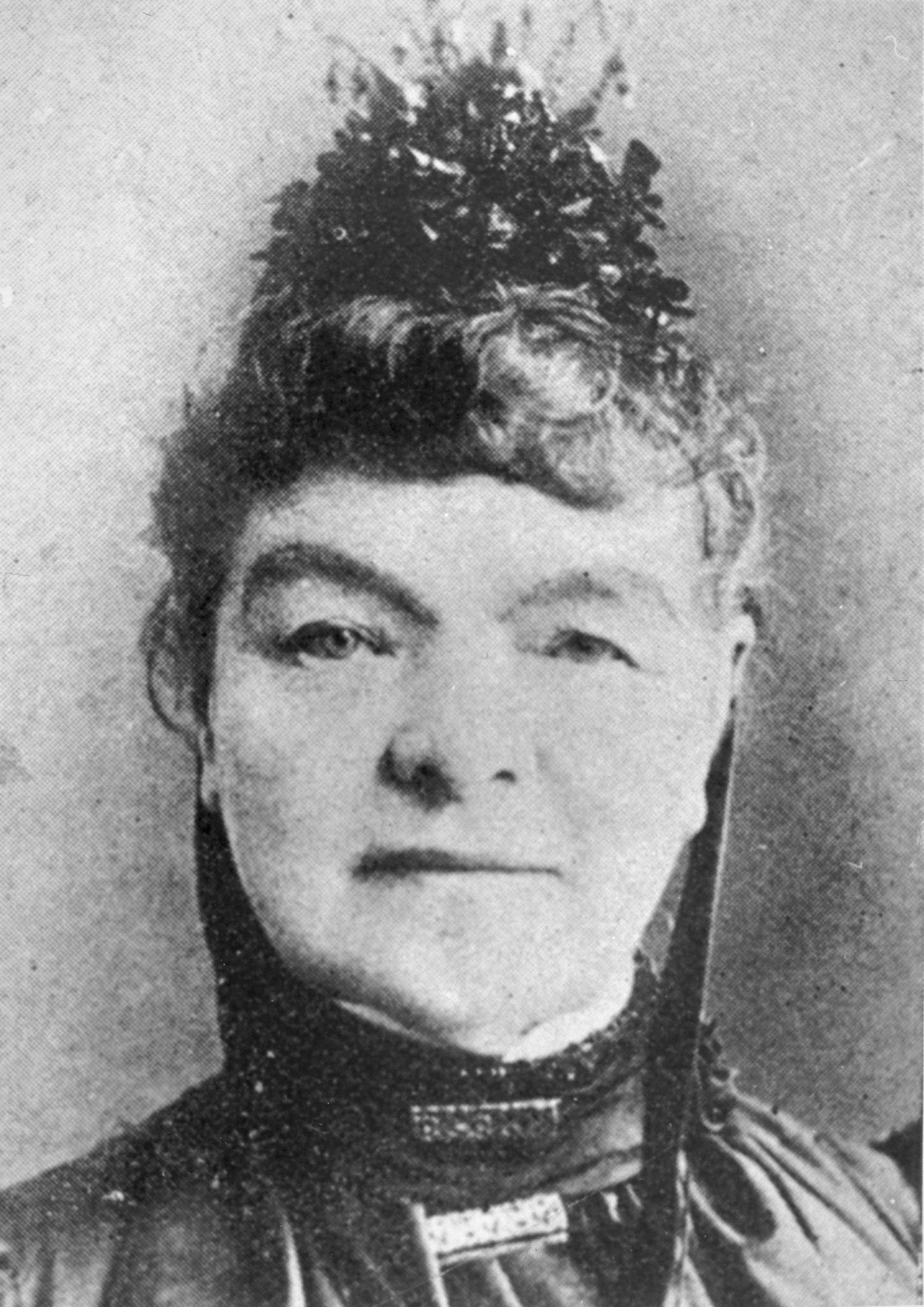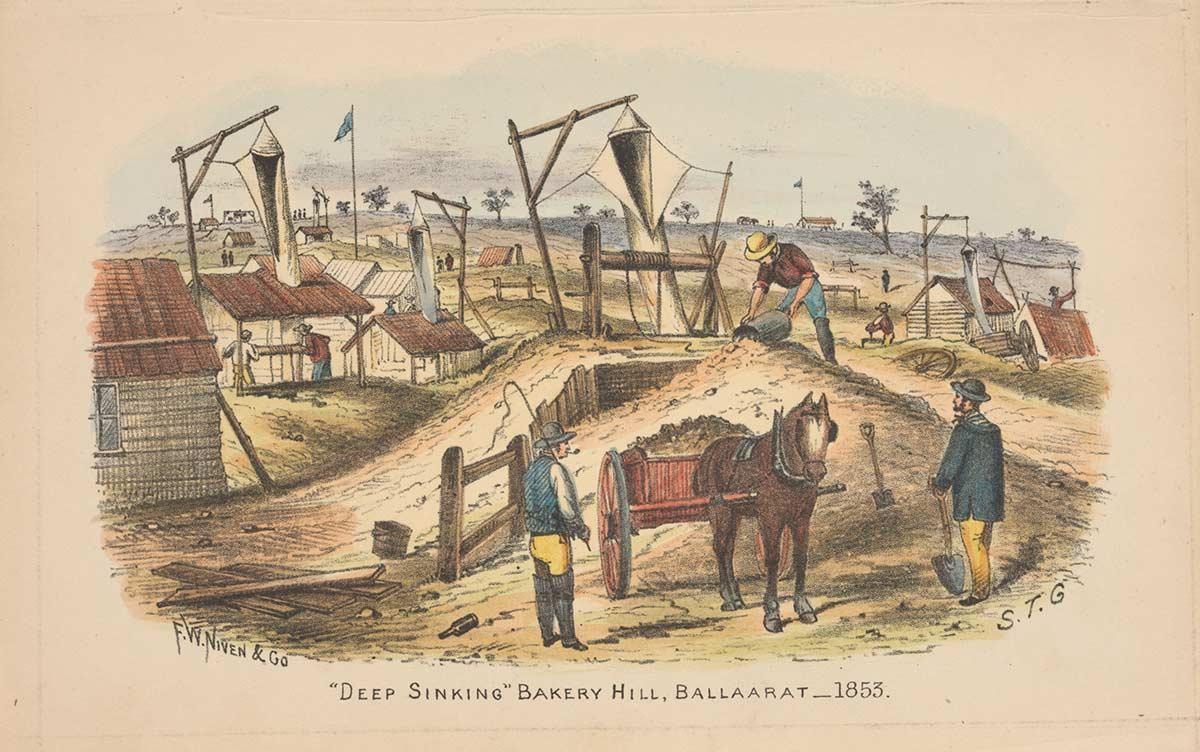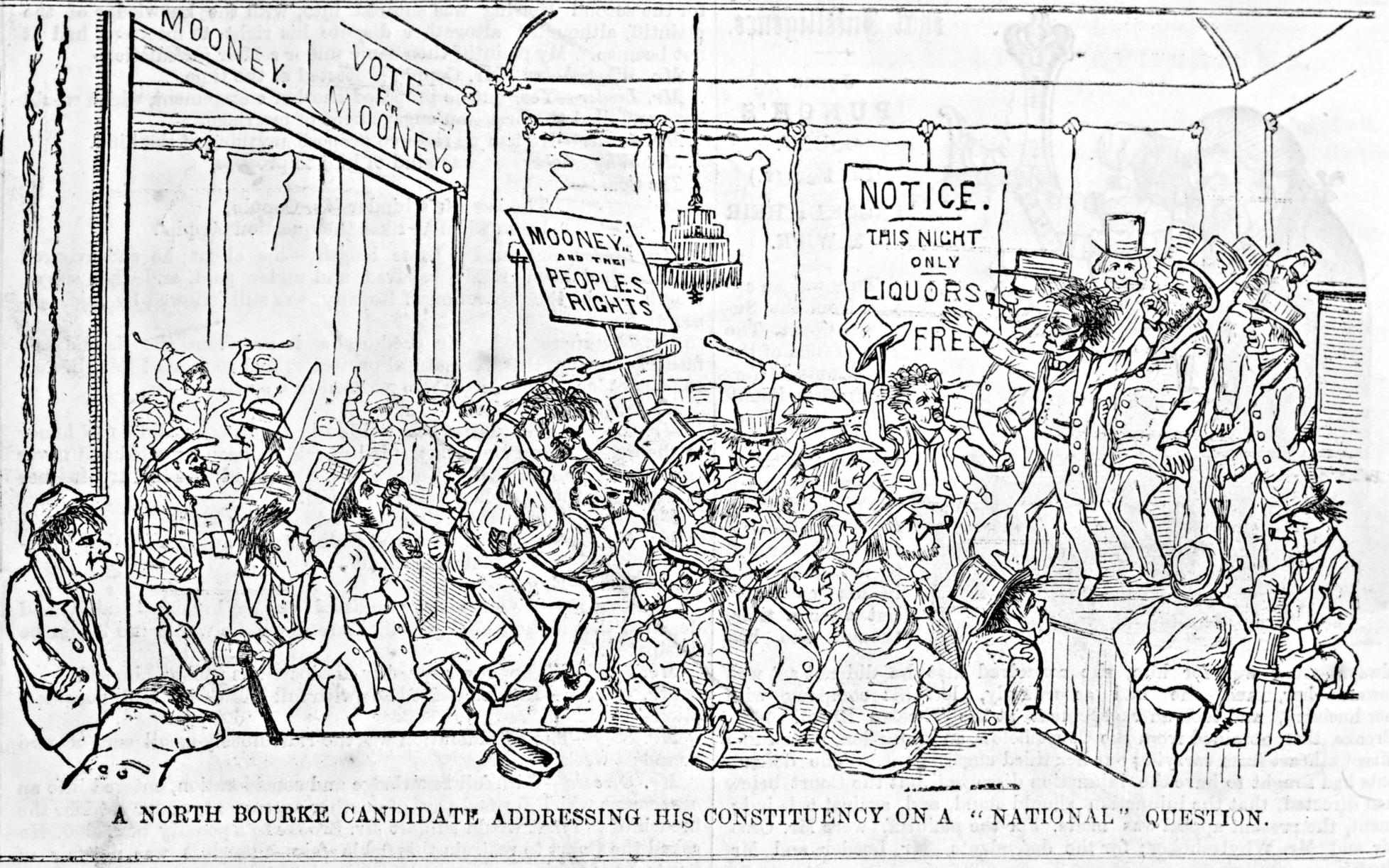Learning module:
Colonial Australia Defining Moments, 1788–1900
Investigation 1: What made us who we are today? Significant events in Australian history in the 1800s
1.6 Eureka Stockade: ‘When blood stained the wattle’
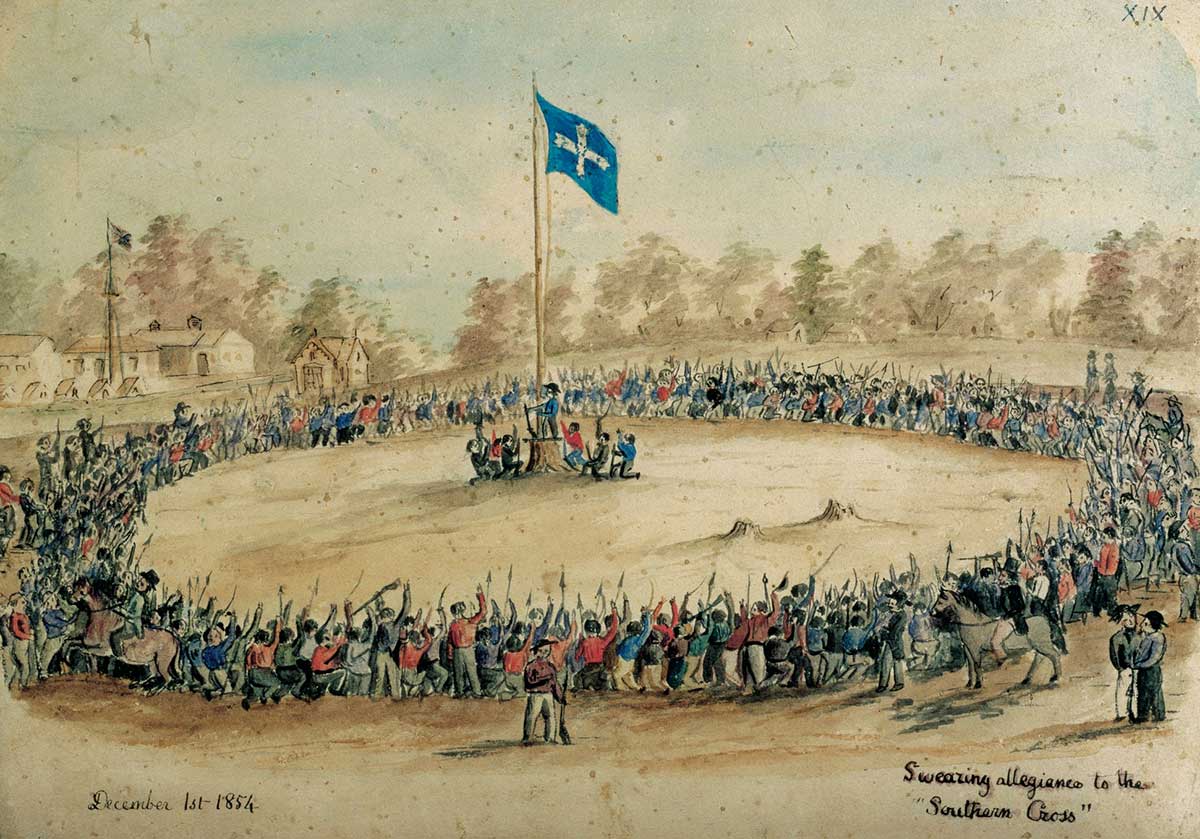
Imagine that…
Five thousand men and women have gathered together. They are angry. They say they will disobey laws that are unfair. They build a sort of fort or barricade, and some are carrying weapons. A force of soldiers is nearby.
-
Should the government send the soldiers in, or wait and let them cool down?
Discuss this question, then see how something like this really did happen in Australia.
Your task is to go through each evidence file and answer the questions.
|
Searching for gold in Australia |
Injustices |
Protest meetings |
An attack on the stockade |
|
Changes |
Looking at pictures |
The Eureka Flag |
Evidence file A
Searching for gold in Australia
Gold was discovered in Victoria in June 1851.
The belief that you could dig your own fortune attracted people from across the country and around the world.
While miners were searching for gold, they still had to live — and this was expensive. They needed food, tents and tools, and were required to pay for a licence to dig.
1. Check your understanding of this evidence by completing these statements.
Evidence file B
Injustices
Special goldfields police would check on the miners’ licences. If a miner did not have a licence to dig for gold they would be locked up and fined. Many of the police took bribes, and were brutal, so the miners usually hated them.
In September 1854 James Scobie, a miner on the Ballarat goldfield, was killed outside a hotel. Other miners became angry when the police and a government official let the suspected killers go.
The miners had other demands as well. They wanted to be able to vote, to elect people to represent their views and needs to parliament, and to pay less tax.
They held protest meetings to let the government know that they wanted changes.
Evidence file C
Protest meetings
At one meeting they decided that they would burn their licences in protest. They did, but then the police held a licence hunt. At another meeting the angry miners, on what was called the ‘Eureka’ area of the goldfield, built a stockade — a rough protective barricade made out of logs.
Evidence file D
An attack on the stockade
The government saw the protest and the building of the barricade as a threat to law and order. Early in the morning of 4 December 1854 the government’s soldiers attacked the stockade. At least six soldiers and 22 miners were killed.
Evidence file E
Changes
The leaders were arrested and put on trial, but people believed they were right to protest about unjust laws, and they were found not guilty.
The government realised that they had to make changes to the way the goldfields were run.
The fee to dig was made much cheaper, corrupt and brutal police were sacked, and miners were given a vote for their representatives in parliament.
People said that the Eureka Stockade helped develop democracy and people’s rights in Australia.
2. Arrange the events found in evidence files B to E into the correct order to tell the story of the Eureka Stockade.
Evidence file F
Looking at pictures
Below are two watercolour paintings of the events at Eureka.
Look at each painting and answer the questions that follow.

3. Describe the scene
4. What is in the middle?
5. Why would the government be worried by this meeting?
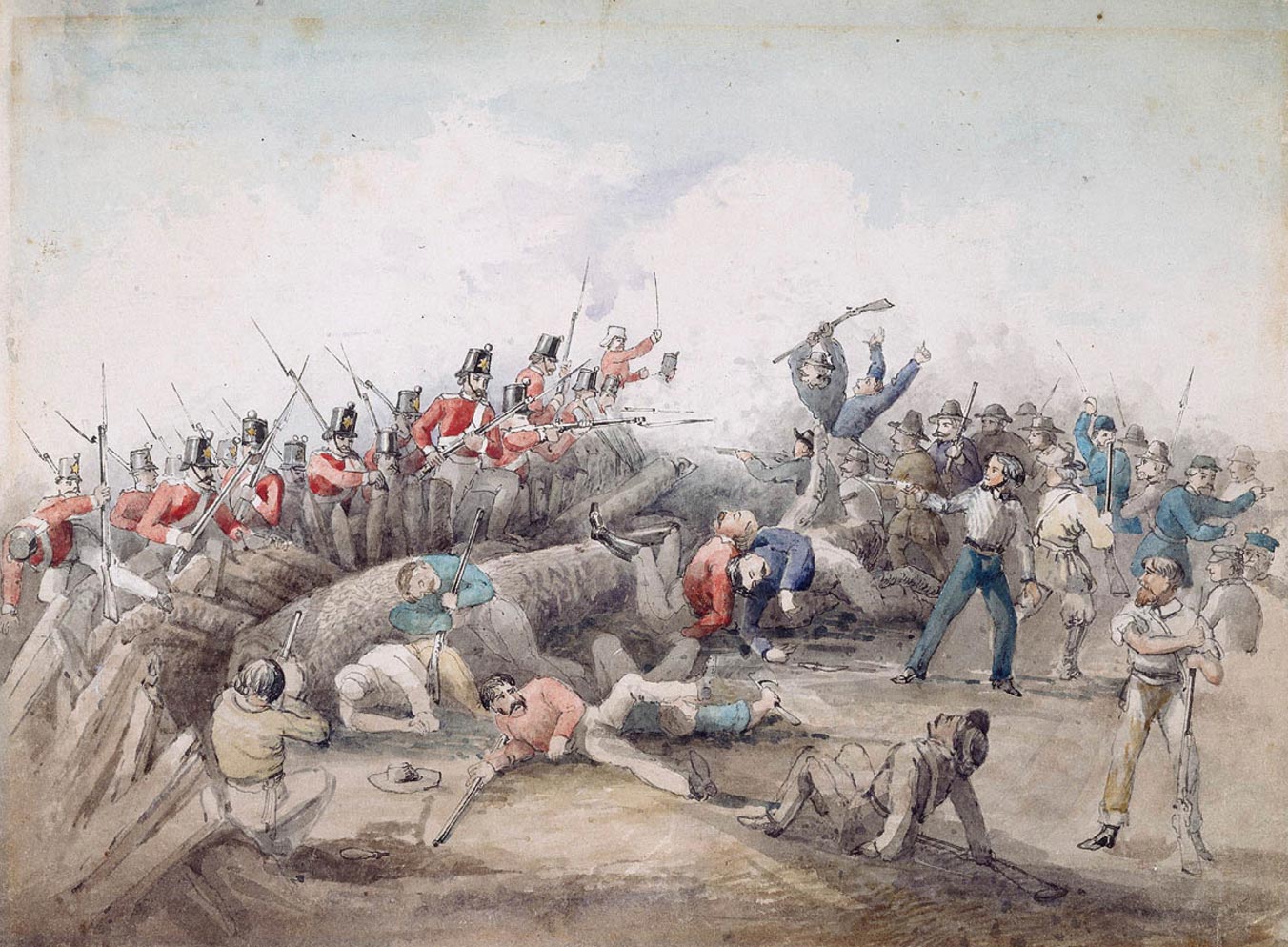
6. What is happening?
7. List any words to describe the sounds and smells that people in the picture might have experienced.
8. List the emotions that you think people there might have felt.
9. Why would the soldiers be more likely to win this fight?
Evidence file G
The Eureka Flag
Here is the design of the flag that the miners flew at the Eureka Stockade.
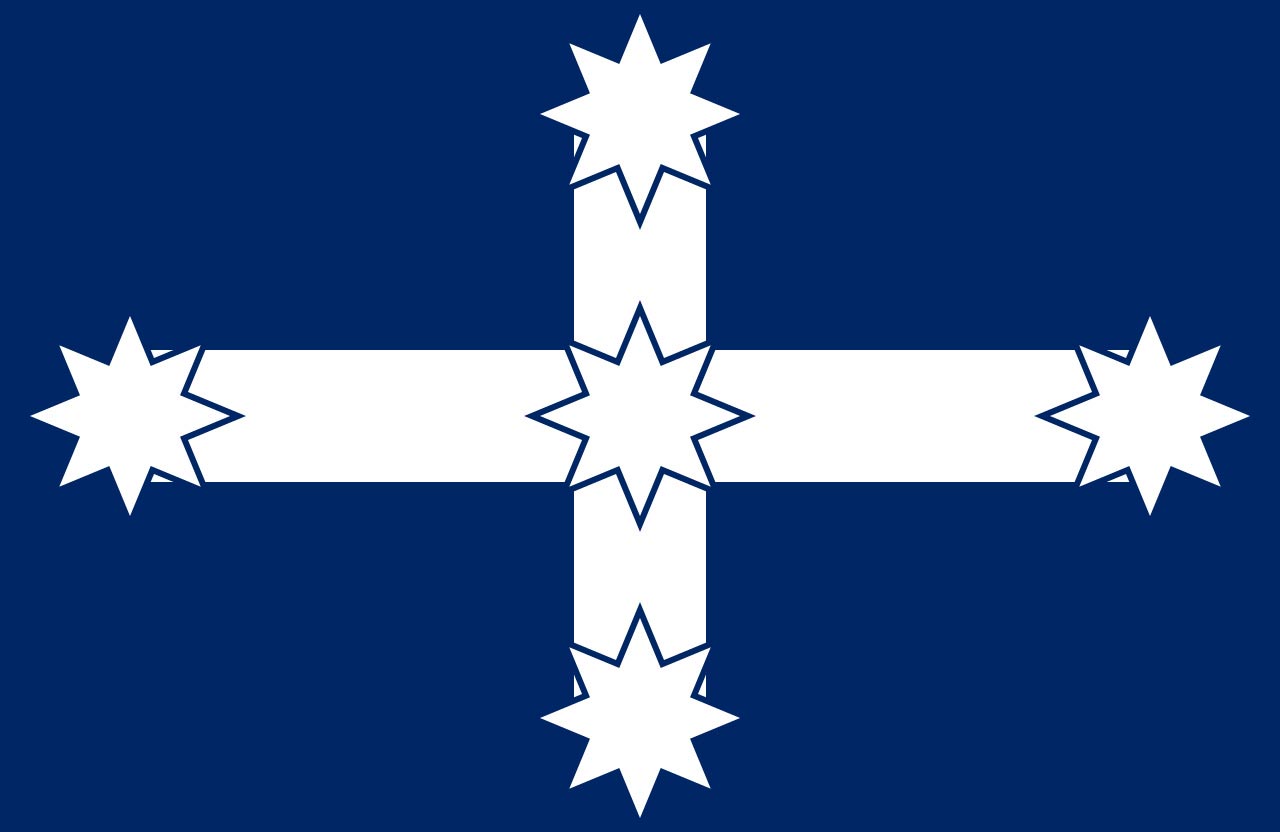
10. What does it show?
11. What does the design symbolise?
12. Why would the rebels fly a flag?
Conclusion
13. Think about everything you have learned in this investigation. (a) What happened? (b) When? (c) Where? (d) Why?
14. Do you think the Eureka Stockade is important in Australian history? Why?
15. The National Museum of Australia has many objects on display. These objects are linked to stories of people, places, events or ideas, and help us understand more about those stories.
Suggest three possible objects relating to the Eureka Stockade that could be in a museum.
16. If you could choose an object to put on display in the National Museum of Australia about the Eureka Stockade, what would it be? Make a choice, and write a short caption for it.
Finding out more
To find out more go to 1854 ‘We swear by the Southern Cross’ — Eureka Stockade
Watch this short Defining Moments: Eureka Stockade animation telling the story of the goldminers’ rebellion.
You can also read more in: Robert Lewis in association with the National Museum of Australia, The Story of Australia, Random House Australia, North Sydney, 2017, chapter 4.






